Scott Alexander wrote the best article about Próspera ever. When I read it, my reaction was “this sounds too good to be true, but I gotta check this out”. My visit exceeded my wildest expectations. This is a common experience for new visitors, so I want to offer a practical guide for entrepreneurs on why and how they should visit, launch and build in Prospera.
After having spent more than 6 months there since April 2022, I am convinced Próspera is the most exciting new jurisdiction of this century to date, my home base for the foreseeable future, and the hub for tech futurists and builders to push the boundaries towards technological progress further than ever.
What Is Próspera And Why Is it Important
Próspera is building a private city located in Roatán*, a Caribbean island about 65 kilometers off the northern coast of Honduras.
It was established under Honduran ZEDE laws, which aim to replicate the successful governance experiments of Hong Kong, Shenzhen, Singapore, and Dubai by granting legal and regulatory autonomy to the administrator of the zone.
*For semantics, Próspera is the governance platform on which cities are built - not the city itself. It’s not supposed to be limited to one territory. For readability’s sake, I don’t always uphold the distinction in this article. Right now it is perceived as the city on Roatan.
Its primary goal is to create a stable legal and business environment to attract foreign investment and spur economic growth in a poor country that needs it.
The underlying thesis is based on the proven special economic zone (SEZ) model. Nationwide reforms face insurmountable resistance from entrenched interest groups that like the status quo. Change in a small, unpopulated territory attracts less opposition. Carving out a legal clean slate with a degree of autonomy allows the city or zone developer to be more agile to build better institutions on a smaller scale.
If successful, this model attracts foreign investment, generates rapid economic development for both the new city and the host nation and the reform program can be expanded. If not successful, it’s just like other failed startups.
In the long run, Próspera can also add new land to its territory or develop land in other countries than Honduras which grants them similar legal status.
By 2040 Próspera could be a multi-jurisdictional “network state” with dozens of different locations or “Prosperity Hubs”, that are under their legal and governance framework, using their technology stack & management practices.
What excites me about the emergence of new jurisdictions with modern regulatory and legal systems is that they could enable a multitude of breakthrough innovations that were previously hindered by outdated laws, red tape, and regulatory overreach.
“Bits reopen innovation in atoms. Innovation in areas like biomedicine, robotics, and energy is not upstream of the network state, it’s downstream of it.”
Balaji S. Srinivasan, Author of “The Network State”
There is a big incentive for cities to harbor the industries of the future in a technology-driven world economy.
If successful, this can unleash massive amounts of technological progress.
Who is Próspera for?
Starting a new society from scratch at a new frontier is a rare opportunity in life.
And while this may be frightening for some, I can’t help but see a profoundly inspiring opportunity to be a pioneer in shaping an environment I want to live in - compared to just admiring the greatness of what my ancestors built.
What if you could be immersed again in the entrepreneurial vibrancy and hustle of living in the early days of cities like Singapore, Hong Kong, or Dubai - or many of the European medieval cities, city-states, the American frontier, etc.?
“Once in a long while in the history of a people, there comes a moment of great change. Tonight is such a moment in our lives. Last Saturday saw the end of an era. This morning the new constitution was promulgated. We begin a new chapter in the history of Singapore.”
Lee Kuan Yew (1959) - founder of Singapore
Próspera was set up with the aim of attracting ambitious hard-working builders. And it is working, despite political challenges by the current Honduran government.
The great news is: it’s not a dream, it’s open for business. The value proposition of a modern legal system, flexible regulations, low taxes, and digital government services has attracted a few hundred people that already live and work there. The breathtaking physical architecture, tropical weather, and paradisiacal beaches are a nice bonus.
It must come with downsides, right? Sure, it’s not for everyone - like with any new startup or business, it’s at the beginning of the technology adoption lifecycle.
If you’re in any of the following three groups, it could be for you:
1. You are a Honduran entrepreneur or worker.
For a Honduran entrepreneur or worker, there is a lot of upside to migrating to Prospera and little downside - you just move back to what you did before.
Living in a poor country is not fun. It’s your culture and you have family and friends here, but you could do without the crime and corruption part. Now you can leave those behind and increase your income by at least 2x without having to move to another country - which would mean a toiling immigration bureaucracy (or risk to your life), adapting to a new culture, and leaving your friends and family behind.
Honduras has extraordinary and relentless entrepreneurs, but incorporating companies, accessing basic financial services (esp. for international business transactions), and obtaining funding are all very challenging. Millions of Honduras are cut off from formal institutions, secure property rights, opportunities, skill training, and good jobs. In contrast, Próspera offers a stable business environment and is connected to an international network of talented individuals and capital looking to employ, partner with, and invest. There is a lot of upside to that.
Examples of Honduran companies operating in Prospera or that have business ties are: Apolo Group (Duna Residences developer), Relay Cloud, Doctor7 (telehealth app), RobotedHN (robot education kits), Salutec (telehealth app), Elevate (talent upskilling), Dokto (doctor scheduling), Salbo (digital insurance) and many more
Below is me with Jose Elvin Salgado, the founder & CEO of Doctor7, and I want to tell you our story because it’s emblematic of what I want to achieve through Prospera.
Jose & his cofounders are medical doctors that taught themselves how to code. Honduras has promising tech startups - but those get squashed quickly by the big banks and the predatory financing environment. Doctor7 was one of the few healthtech startups that persisted, but he said 9 out of 10 of his peers quit.
I learned about Doctor7 through a Forbes article about promising tech startups in Central America. I contacted all of them for user research. At the time, Doctor7 was a bit unfocused, but I quickly realized how extremely coachable and hungry Jose was. I recommended that they consider applying to Y-Combinator to gain more clarity.
That process helped them pivot to a much simpler business model. I showed them how to create a Delaware company and use SAFE notes. As a result, they participated in the Prospera pitch competition and won. Now, they have 5k paying customers and $200k in annual recurring revenue. I am proud to be the first institutional VC investor, and by extension, the first ever in a technology startup from Honduras.
Imagine we do 100x of this.
2. You are an international frontier tech entrepreneur
Próspera’s regulatory environment can make a big difference.
For entrepreneurs operating within inflexible and constrained regulatory systems, such as healthcare/biotech under FDA, crypto under SEC, or aerospace under the FAA, Próspera presents a remarkable opportunity to initiate or expedite the development of your product without compromising safety and legal trust.
It’s not the right place if you want to do stuff that’s illegal for good reasons, and it’s not “completely unregulated”. It’s also not open for vice industries - not because they don’t believe in personal choice, more because it doesn’t look good. After all, they’re a business and care about their reputation. The idea is to develop a more rational approach to regulation compared to the haphazard old way:
"Our entire antiquated process of adversarially writing high-stakes laws on paper at the last minute, deploying them in production to hundreds of millions of people without any testing, and then getting them interpreted in unpredictable ways by regulators and solicitors will be seen as a bizarre relic of an older time."
Balaji S. Srinivasan, Author of “The Network State”
To illustrate the need for regulatory innovation, getting a new drug approved under the FDA in the United States is said to require a staggering $2.6 billion (that figure is exaggerated, but it’s definitely in the 100s of millions) and spans over 10+ years, rendering it unfeasible for thousands of promising projects. Perhaps even more importantly, this model makes small product iterations impossible.
In Próspera, the gene therapy startup Minicircle did a phase 1 clinical trial at a fraction of the cost compared to the USA - not by cutting safety, but by cutting bureaucracy. They work with the GARM stem cell clinic run by experienced American physician Dr. Glenn Terry. GARM has an IRB, another name for an ethics committee, and is authorized to oversee clinical trials in an FDA-compliant way.
Another company frontier tech company is The Circular Factory, which boasts advanced digital manufacturing technologies (founder interviewed here). They employ robotics and locally sourced natural materials to construct aesthetically beautiful and functionally advanced buildings. Their first prototype is open for visits in Roatán.
Seshat Bank is another case of regulatory innovation: the company obtained a banking license within 6-12 months and for a fraction of the cost compared to other jurisdictions. Banking is a prime example of a captured industry. FDIC-insured bank charter approvals in the US are down 98% since 2008. The founder of Seshat Bank (interviewed here) read the former Governor of the Bank of England Mervyn King’s book “The End of Alchemy” which proposes an alternative to the “lender of last resort” model. Seshat is now regulated by “Financial Regulation A” which encapsulates King’s alternative “pawnbroker for all seasons” model.
Aerialoop is a drone logistics company (disclosure: I’m an investor) that builds hub networks for urban areas. They have a base in Quito, Ecuador. Próspera serves as another launchpad, enabling them to de-risk the technology. That solves the regulatory “safety paradox”. As the CEO of Zipline once said: “Even with infinite money, it would be hard to build our service in the lab. You have to learn by doing.”
These four are the most established VC-funded tech companies there, but there are a total of 130 more registered businesses, including more traditional businesses.
So, if your company aims to push boundaries in industries where existing regulations pose bottlenecks or legal uncertainty, whether in crypto, healthcare, drones, or new education methods, then considering Próspera as a jurisdiction can make a massive difference, like zero-to-one, saving 90% fixed cost or faster time-to-market difference.
I recently had conversations with entrepreneurs interested in Próspera for the following:
Clinical trials for genetically engineered bacteria that remove cavities forever
Cancer-screening and remover devices that are currently stuck in endless trials
Nomadic or co-living communities that want to build a physical node
Jet packs - yes, maybe you can fly like a superhero soon in Prospera
Tokenizing real estate, NFT-based mortgage lending protocol
I can’t highlight enough how this is only a small fraction out of a much larger space of ideas that we developed during the past conferences, and how this is just the beginning of it all - and it has the potential to be 100x within the next 10 years.
Cheat sheet: It comes down to three clear use cases for frontier tech startups.
Medical tourism, healthcare & biotech clinical trials (ex. Minicircle)
A physical launchpad to showcase or R&D your new tech (ex. Circular Factory)
The jurisdictional legal flexibility, e.g. for finance & crypto (ex. Seshat Bank)
3. You want to be part of a technologically-progressive and forward-thinking community
The initial residents are the ones who have the highest conviction and are naturally technophiles - the early adopters in the lifecycle.
As Y-Combinator founder Paul Graham once said:
Ambitious people are rare, so if everyone is mixed together randomly, as they tend to be early in people’s lives, then the ambitious ones won’t have many ambitious peers.
When you take people like this and put them together with other ambitious people, they bloom like dying plants given water.
Probably most ambitious people are starved for the sort of encouragement they’d get from ambitious peers, whatever their age.
There is just a different kind of urgency. At the first-ever conference, my now good friend and Honduran lawyer Ricardo Gonzalez told me: “This is my dream. I have the opportunity like in the US while lifting up my own country.” The people that are there are almost automatically friends on a bold and ambitious mission. It brings out the best in people. Perhaps that was the moment when I said: this is my tribe.
Summary
The main three groups I see forming in Prospera are Honduran entrepreneurs & workers, frontier technologists & other technophiles who like the idea.
Here is a breakdown of the first 1.000 residents and where they come from:
4. And, who is Próspera NOT for?
Well, if you don’t fall into any of the previous categories, Próspera might not be the most obvious fit. If you operate in a less or unregulated industry like software without bureaucracy hindering the growth of your business, other places have advantages.
For example, Próspera does not have:
Existing large companies or a business hub with 100s of potential customers;
Developed amenities for digital nomads like Chiang Mai or Medellin; it’s honestly quite good, but there are more established nomad hubs with more to offer
The cultural density and scale of a large city; e.g. there is no cinema on the entire island (the energy costs for indoor cooling huge theaters are prohibitively high);
A large, diverse dating pool (it is however LGBTQ-friendly).
Existing cities have network effects. When your competitors have millions of people and identities around e.g. finance (New York), tech (San Francisco), or entertainment (LA), you shouldn’t target the majority persona. Prospera competes on the margins.
If you’re a lifestyle digital nomad, there are likely better places for you. It’s still great for that, it’s just not its USP compared to a large Latin American city.
Próspera is also not a tax haven and it doesn’t aim to be. There are places better suited, such as the Cayman Islands, the British Virgin Islands, or Dubai. Although the jurisdiction has a competitive tax rate, that’s not the primary value proposition.
Travel to Prospera can be a bit expensive, especially from other Latin American countries. Maybe it’s because of a lack of regional integration, costs for fuel, local airport taxes & regulations, or the general unpopularity of Honduras as a country (though Roatan is on the best way to develop a great brand for tourism).
So ok, you feel attracted to this idea, think you have a good fit, and want to be part of it, or at least explore more.
Now what?
Joining the Community
First, join City-Builders Network, an online community that brings together local entrepreneurs, investors, creators, and enthusiasts around the idea of building new cities. This is a good starting point to find like-minded individuals, or potential partners and clients for projects.
On the platform, you can also explore real estate development opportunities in the city, find future events, search a marketplace, open job listings, and much more.
Engaging with the community and connecting with other enthusiasts is a great way to get steeped in Próspera's ethos and get a closer glimpse of the city's day-to-day reality.
Please keep in mind that these are all very busy entrepreneurs, so do a bit of your own research before you ask “so how can I start an LLC?” as the first thing.
Learn
Learning about Prospera is a rabbit hole. If you’re naturally curious, you’ll thrive. There are numerous interviews, podcast episodes, and articles about the projects
I’m only linking to my favorites here:
The last two received some critique within the community. Here’s why so you can understand their thinking a bit more.
Próspera likes to be perceived as very credible and professional, and the Minicircle documentary seemed a bit too adventurous. I quite liked it, but that comes with my bias as a VC. I tend to forget that normal people feel a deep unease about medical experimentation that is not directly supervised by a coercive authority (technically it isn’t “directly” supervised in the US either, it’s really mostly about the looks).
The Reason documentary was criticized for making it seem like “there are two sides to the legal debate” where the Próspera legal team felt they should have made a clearer statement about Próspera’s legal rights. Also, Próspera tries to tone down the “libertarian” brand and instead makes it really about entrepreneurship. What I still like about the documentary is that they accurately show that many local people think highly of Próspera and benefit directly from the opportunities it offers.
It’s something that is misrepresented by Western (especially left-leaning) media. Airport noise NIMBYism exists here too, and some locals try to advance themselves politically by spreading negative sentiments about Próspera. The truth is that the overwhelming majority don’t know much about it or care, and there are a sizeable number of people who directly benefit and like it. There has not been a single negative incident involving Próspera actually harming anyone.
I don’t think any business can exist without anyone feeling treated unfairly at any point in the future. But then it can be sued like any other company.
I let you be the judge - but anyway, nothing beats visiting in person.
Visiting Próspera
No amount of reading or virtual interaction will replace the experience of visiting Próspera in person. I know that going to a new country with a reputation for crime feels uneasy. I felt the same way before I went for the first time. I promise you will likely be extremely positively surprised once you land in Roatán.
The island of Roatán has an international airport, making the trip quite convenient from the US, although the ease of travel may vary depending on your location.
Most people typically fly through Houston, Miami, Dallas, or Atlanta, as these airports offer direct flights to Roatán. From locations such as NYC or Washington DC, the journey typically involves just one stop before reaching the island.
Alternatively, you can reach Honduras through airports like San Pedro Sula or Tegucigalpa, or the new airport called Pamerola. These options may be a bit more challenging when coming from outside the United States, especially from Europe, where there is only one direct flight from Madrid to San Pedro Sula.
I have taken the flight twice from Roatan to Montenegro and back, and it wasn’t fun at all. It’s hardly affordable without kiwi.com, and you need to be very careful about layover times and there is a decent chance of flight interruptions.
The easier it is to get to Madrid from Europe, the better - but otherwise, it’s hard.
If you come from Latin America, I recommend searching directly with airlines. Once you’re in Honduras, you’re fine - the connecting airports there are decent.
These airlines and travel portals will help you to find the best options:
CMAirlines (local airlines, from the mainland to Roatan, some regional options)
Volaris (some regional options, generally very high-quality online service)
Aerolineas Sosa (local airline, from Honduras mainland to Roatan)
Avianca (some regional options)
United (best from the US)
The best portal to search for connections is: Kiwi.com
However, you have to be very aware that they are making money by upselling services. If you don’t do that, all the risk of cancellations and self-transfer is on you.
And once you made it, that will be your welcoming view.
Roatán, where Próspera is located, is one of the islands part of the Caribbean. It is composed of white sand beaches with crystal-clear waters and is home to the largest barrier reef in the northern hemisphere. As such, the island is a popular destination for scuba diving and snorkeling. Roatán sees over 1 million visitors per year.
The Weather
The weather on Roatan is almost perfect, allowing for year-round travel with an average high of 89.6°F (32°C) from June to September, and annual lows occurring in late January with average temperatures reaching 77°F (25°C).
Unlike the monsoon season, the rainy season in Roatan is not characterized by daily, relentless downpours that flood the island for months on end.
Moreover, Roatan is strategically and luckily situated outside of the Hurricane Zone, protecting it from the majority of annual hurricanes which impact places like Cuba and Puerto Rico, which is a great advantage in the Caribbean.
The infrastructure
Right now, Próspera has a few hundred residents, primarily bundled in a 1.000-acre territory divided into two parts: a greenfield site (with a co-working space, a residential tower, a futuristic construction workshop) and a luxury resort that came ready-made (with villas, hotels, restaurants, the Bitcoin Education Center on top).
Additionally, it owns land in the northern part of the island and on the Honduran mainland’s La Ceiba city where they’re building the Satuye Port (!).
Próspera and the entire island have a decent infrastructure.
There are grocery stores, coworking offices, and restaurants, and the region is safe.
Eldon’s Supermarket is the main brand with three quite big, easy-to-reach stores on the island. The prices range widely since the island imports a lot: fruit and basics (e.g. rice, sugar) are cheap, while e.g. cheese and pizza are more expensive.
Positive surprise: it’s quite vegan-friendly and has a wide range of plant-based meat options for close to US prices (I’ve seen much more expensive in Mexico).
The roads are mostly fine. The occasional puddles are not a big deal, except if you go to the less developed Northern part of the island. Drive more slowly there.
To move around is recommended to rent a car because taxis are a bit less affordable. The place to do it is Atlantis Rent-A-Car, run by a Prosperan so of course you can pay in crypto. Prices start at a very affordable $35 per day, and a guy brings it over and picks it up again from anywhere on the island, insurance and service all included.
Housing
Right now, housing options within the zone are limited. However, there are residential developments underway, with Duna Residences being the first to be constructed entirely within the zone. Following Duna, there will be Pristine Heights and Beyabu. Additionally, commercial spaces are available for rent.
Duna Residences will offer very affordable options, with apartments starting at $90,000 for purchase and rents starting around $500/month. These are under construction and will be completed later this year (Q4-2023).
I will live in one of the apartments above.
Current properties in the zone include villas within the Pristine Bay Resort and Las Varandas, which are higher-end residential options suitable for families or groups.
Another good option is to rent villas or Airbnbs and share the costs with multiple people, in the scenario of a conference, for instance.
Outside Próspera there are more affordable alternatives, such as Roatan Yacht Club and several options on Airbnb in the island.
For long stays, there are numerous housing options down the road from the zone, including affordable options available for rent for $500-$700/month within a 10-minute drive of the zone - to get those you need to be a bit savvy or book early, you can e.g. use this Facebook Group but use caution before you transfer money. There are many unlicensed agents which can be a bit unreliable at times.
There are a few hundred residents registered in Próspera on the island, and today most of them live in residences outside the zone and commute in for work.
Education
Higher Ground Education is the world’s largest Montessori school operator and chose Próspera for its first school in Latin America. Within 90 days of holding an introductory call with Próspera, Higher Ground opened Guidepost Montessori Roatán.
The School offers preschool, elementary, and middle school programs available as a 5-day full-day per week option. Monthly tuition rates vary based on the start date.
You can find more information on the website or with Director Edward Lunney.
There are also adult-focused initiatives, such as AmityAge Bitcoin Education Center, that educate about Bitcoin technologies and have the first Bitcoin ATM on Roatan.
Events
In addition to its natural beauty and well-developed infrastructure, Próspera has an intense agenda of innovation-focused events. It’s where you’ll connect with entrepreneurial people actively working to make this project a reality.
So, if you are considering a visit to Próspera, you should check the calendar of events and plan your trip around the ones that align with your interests most.
(Yes, the older man in the back with the pink shirt is Robin Hanson)
In the upcoming months, I will host the following events in Próspera:
Devfest Honduras on Island 2023 with Google Developer on 24 Aug, an event about web development and blockchain/web3
Contech 2023 - Architectural Visions & Material Superabundance on Sep 8-10.
Crypto Futures & Legal Engineering 2023 - A Próspera Builders’ Summit on Nov 3-5, An event for cypherpunks, legal hackers, and financial engineers that aim to build supercomputers to eat the world of atoms.
Desci & Longevity Biotech 2023 - A Próspera Builders’ Summit on Nov 17-19, an event for renegade scientists, crypto-futurists, and healthspan bioengineers.
Vitalia - Starting the Frontier City of Life on Jan 5 - Mar 1, a 2-month-long camp to explore the foundation of a new city centered around health innovation.
You can keep up with the updated list at the Infinita Luma.
Launching a Business
If you’ve had the chance to visit Próspera, or even just engaged online, enjoyed the community and the environment, and now wish to leverage the jurisdiction to launch your project, here’s how. The good news: you don’t need to move there full-time to get access to most of the benefits. But it’s recommended to acquire a bit of legal savvy.
Próspera offers two tiers of residencies.
1. Virtual e-residency: This tier provides you physical access to Próspera for 180 calendar days per 12 months. Additionally, it allows you to purchase property and establish corporations and other legal entities. All online.
It costs $130/year and takes a few days to complete the process.
2. Full Residency: This is for those who want to reside in Próspera (semi-) permanently. The cost for foreigners is $1,300 per year, for Hondurans, it is $260.
The process for obtaining full residency is slightly more intricate because it requires first to become a legal resident of Honduras. Fortunately, getting legal residency in Honduras is relatively straightforward and can be done through various options, which cost around $3-5k and have a processing time of 3-6 months (immigration guide is here). There are several local lawyers to navigate the whole process.
Digital residency is enough to incorporate a company in Próspera. This process is conducted online, straightforwardly, and only takes a few minutes (as a comparison, forming a legal entity in the United States typically takes around 4 days).
Almost any formal act is online and takes a few minutes, including filing taxes or annual company reports. The easiest you’ll find anywhere.
The total cost for a resident to establish a business entity varies, but in most cases, it’s approximately $900 USD, which includes e-residency and liability insurance.
Interestingly, numerous entrepreneurs who live outside of Próspera (e.g. in Austin, London, Medellin) utilize the jurisdiction as a base for showcasing their projects, conducting clinical trials, networking, or other business-related activities. This is an intelligent approach that enables entrepreneurs to leverage Próspera's advantages without needing to permanently relocate. Nothing wrong with being multi-jurisdictional, I plan to live 4-6 months in Próspera and otherwise stay nomadic.
For Tech Startups
Your optimal jurisdictional setup depends on a number of factors and you should consult legal advice. However, here are a few basics & some initial ideas.
You still need a Delaware entity to get VC funding
VCs have decided on Delaware C-Corps as the norm to invest in, and they don’t like to do much if anything outside. If you don’t have that, you’re at a disadvantage.
You can also do Delaware LLCs and Cayman Holding as an investment vehicle.
A good starting point is this article on the “Cayman Sandwich” setup that is standard for Latam-based technology companies. I am hoping Próspera can replace Cayman.
Próspera LLCs aren’t ready to disrupt this model yet. Próspera-based tech startups still use Delaware entities, and I use them myself for my VC fund.
Próspera Operations LLC
If you have operations in Próspera that you want to use for regulatory advantages, then an LLC that you use for operations might be a good idea.
The challenge here is: while you are much more flexible than anywhere to transact in crypto or run it as a DAO, it’s proven not that easy to open a bank account. The available options are Payoneer, Tower, and Seshat Bank, but because they rely on third parties, the compliance process can involve quite a bit of paperwork.
In practice, we use patchworks of other entities, crypto, etc.
Próspera Holding LLC
Here is something I am doing myself, and I’m thinking this could be a very scalable model. I have a Próspera LLC with an Operating Agreement as a holding company (see an extremely simplified template here) that owns my VC fund entities.
The advantage: reduce tax burden & complexity, and my holding entity is open for innovative crypto or governance use cases (I don’t do them yet). Holdings are a sophisticated wealth-building vehicle typically too expensive to start and maintain for younger entrepreneurs like myself, but potentially with a massive payoff.
To do this, I don’t need a bank account. I just run my business with US bank accounts like Mercury for my Delaware entities. This makes it easy to get started with Próspera.
Again this is no legal advice. You should get a bit savvy with legal, something I never dreamt of doing before I came here - but now realize how much of a superpower it is.
Leveraging the Regulatory Model
The regulatory model is Próspera’s killer app. The central idea is that regulations are becoming more like a product rather than a command from the government.
At the heart of this model is choice: as a business owner you can choose what regulations you’re under. The only requirement is that you need to obtain liability insurance and agree to binding arbitration.
Liability Insurance
First, your status depends on whether you’re a regulated or unregulated industry. Much fewer industries are regulated than elsewhere, e.g. healthcare software is regulated like software (little to not at all), not like healthcare (extremely regulated).
Liability insurance is intended to be a private market, i.e. you could yourself create a new business that provides liability insurance. Right now, Próspera is the only provider of this service but is actively recruiting additional providers.
Private Arbitration
Same as with liability insurance, Próspera provides a default option: the Próspera Arbitration Center. Again, this is only the starting point, but Próspera wants this market to be run competitively by third parties as well. You can also select an international arbitration provider or set up your own arbitration center.
The whole idea is again that market competition is the regulator: if you provide shoddy or corrupt arbitration services, your reputation will suffer. Businesses typically want stability and no legal troubles, corruption would undermine that.
Regulatory Election and the Three Choices
If you’re a business in a regulated industry, besides the above you have three choices:
Common Law Legal Liability, without additional regulation
Under this framework, you can stay unregulated. However, common law legal liabilities are harsh and can pierce the corporate veil in case of a normal criminal code crime or misconduct (e.g. fraud, lacking informed consent, violence).
That means you can get started with a default “Yes”, but then you need to be extra careful and sure of what you’re doing and the actors you work with.
You’re incentivized to adopt a regulatory framework to protect yourself from liability.
Adopt a framework from “best practice” countries
Próspera allows the regulatory frameworks from the top 30 OECD countries plus Honduras.
This is used e.g. by the Apolo Group, the developer of the Duna residences. Apolo is used to the Honduran construction regulations, and they can operate in Próspera under the same standard. It is a good tool for interoperability with other countries.
The idea is quite cool, isn’t it? If you want to set up a new clinic, you can opt for Norwegian, Japanese law, or anything else you want - you’ll have an easy time convincing the insurer and the arbitrator because there is lots of precedent for it.
Now if you want to be really innovative, there is another option.
Innovation: Propose your own regulation
What if you want a combination of construction regulations from Houston and Tokyo? You can do that. You can propose your own regulatory code.
The process involves submitting your proposal to the Próspera Council for approval and expert review. Próspera prides itself on not rushing this process - they take the time to thoroughly review the proposal with experts to ensure it's done properly.
Again, you have to find insurance and arbitration. In the future, this process is probably more costly to you and will be met with higher insurance premiums. It’s just easier to insure something that’s “we do it like it’s done in the entire country of X”.
Right now, it’s really easy and you’ll be met with a lot of help & enthusiasm because Prosperans are eager to create these success stories to show off their model.
Either way, it is much better than just having to accept the usual capricious, incompetent, and overreaching soup of three-letter regulatory agencies from having an effective command to tell you what to do and wiggle your way around it, spend years in courts or 10+ years for pre-market approval paying hundreds of millions.
As Scott Alexander said:
“To my biased eye, Próspera’s institutions aren’t just better than Honduran institutions. They might well be better than the institutions of America, Europe, and the rest of the developed world. Some of their ideas - 3D property rights, modular construction, common law regulatory options, medical reciprocity laws - are genuinely innovative, the first in the world.”
Investing in Próspera’s Future
Próspera is a moonshot. It is funded by VC companies such as Pronomos and Bedrock Capital. They fund the “software-like” stack of governance tools & law.
Próspera’s idea is for this software stack to create “Singapore-in-a-box” style growth anywhere where it gets jurisdiction, thereby multiplying land values by several 100es.
This land value multiplier is key to Próspera’s exponential growth case. Imagine running the software that creates new Dubais or Singapores repeatably.
Disclosure: I am not a shareholder in Próspera, but I have skin-in-the-game in its success through my work and as a resident there. I offer no legal or investment advice.
You can invest naturally in several entities, the operating company, real estate, and land. I also heard word of a regenerative medicine hub. Basically, anything you could invest in a technology-driven city with massive growth potential. I myself created a VC fund called “Infinita” to invest in frontier technology companies.
Looking to the Future
If any of the above sounds appealing to you, my advice to all innovators is to get close to Próspera, whether through joining the online community or visiting.
Próspera is more than just a physical location. It is a platform for governance that can be deployed anywhere in the world. It’s a new operational system for societies. An idea that transcends its land boundaries. It aims to deeply impact how things are governed, and unlock a vast amount of innovation and progress.
And if you come this far in this article, there is a good chance you have that DNA.
To close once again with a personal note: I am biased. I love what Próspera stands for. I am part of their mission. We're measuring ourselves against extremely high ambitions, and we don't always live up to them. After all, it's a startup; don’t expect that we have all the answers. The allure of startups lies in how quickly things change and how rapidly you can grow. If startups generally appeal to you, Próspera probably offers a fantastic mental payoff - imagine your city is a startup you’re part of!
If this post makes you skeptical and wants to ask more questions, then it’s probably just not for you. If it makes you genuinely excited, then there is really no reason to wait much longer - come visit us maybe for any of the coming events!
You can join this Telegram group to connect with other people who want to visit Próspera.
Thanks to Jean Hansen from Peerbase for editing & research assistance.






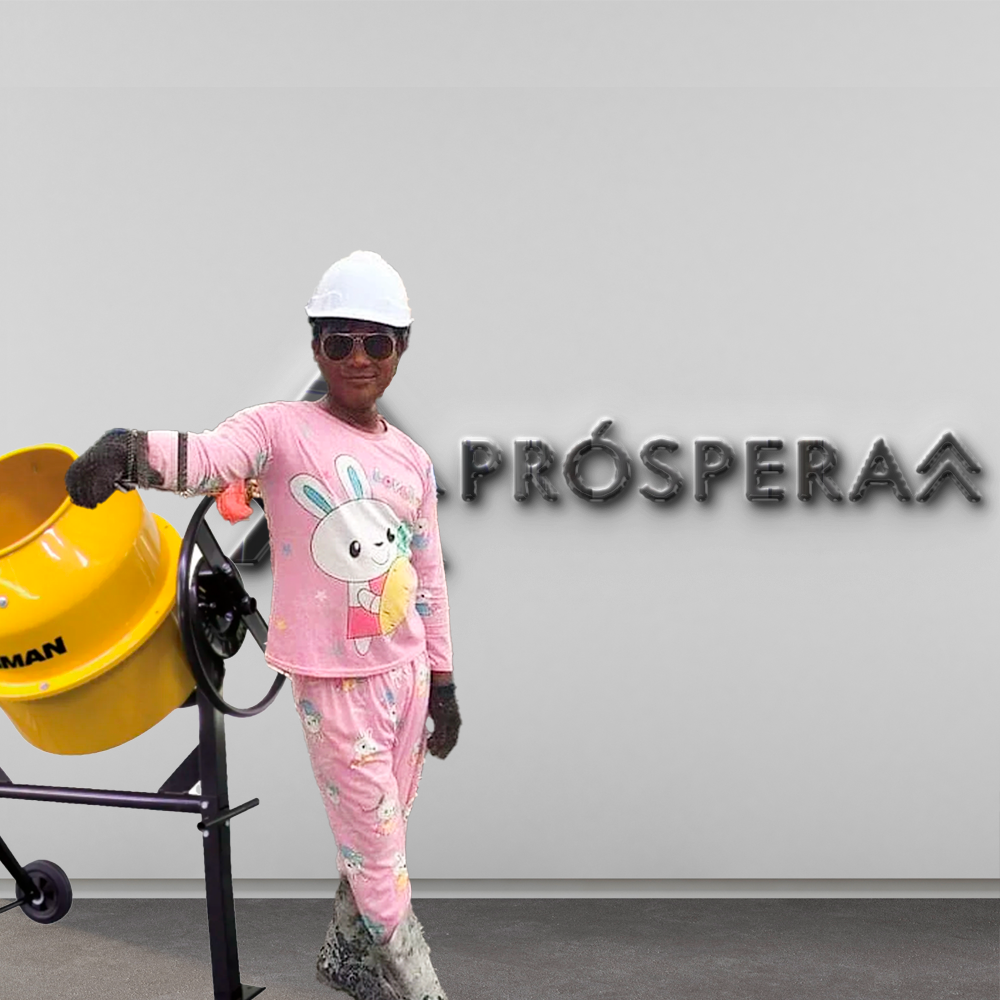




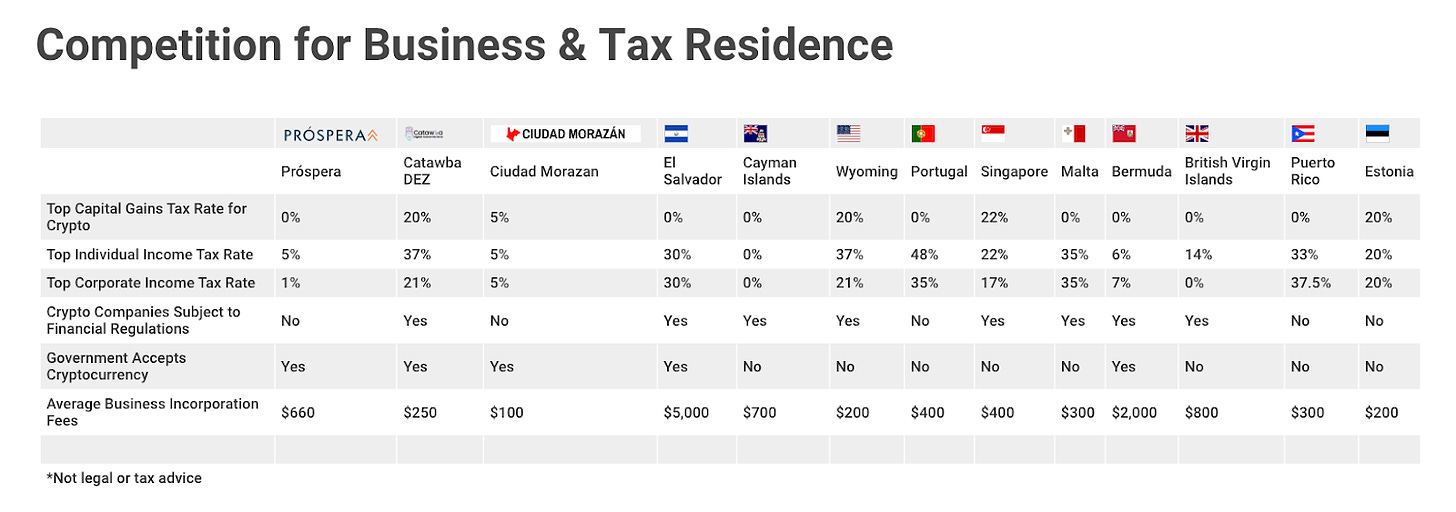


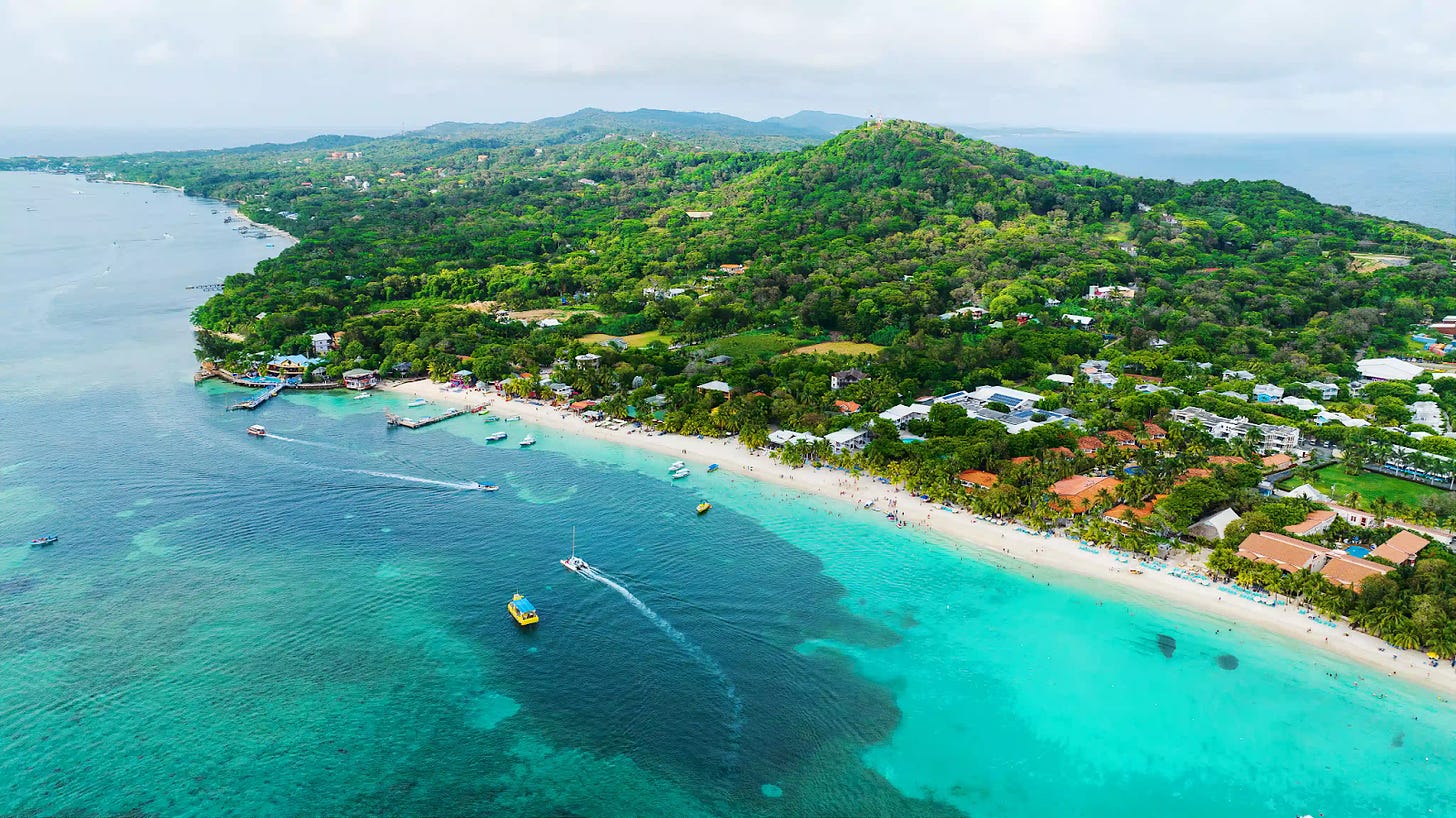
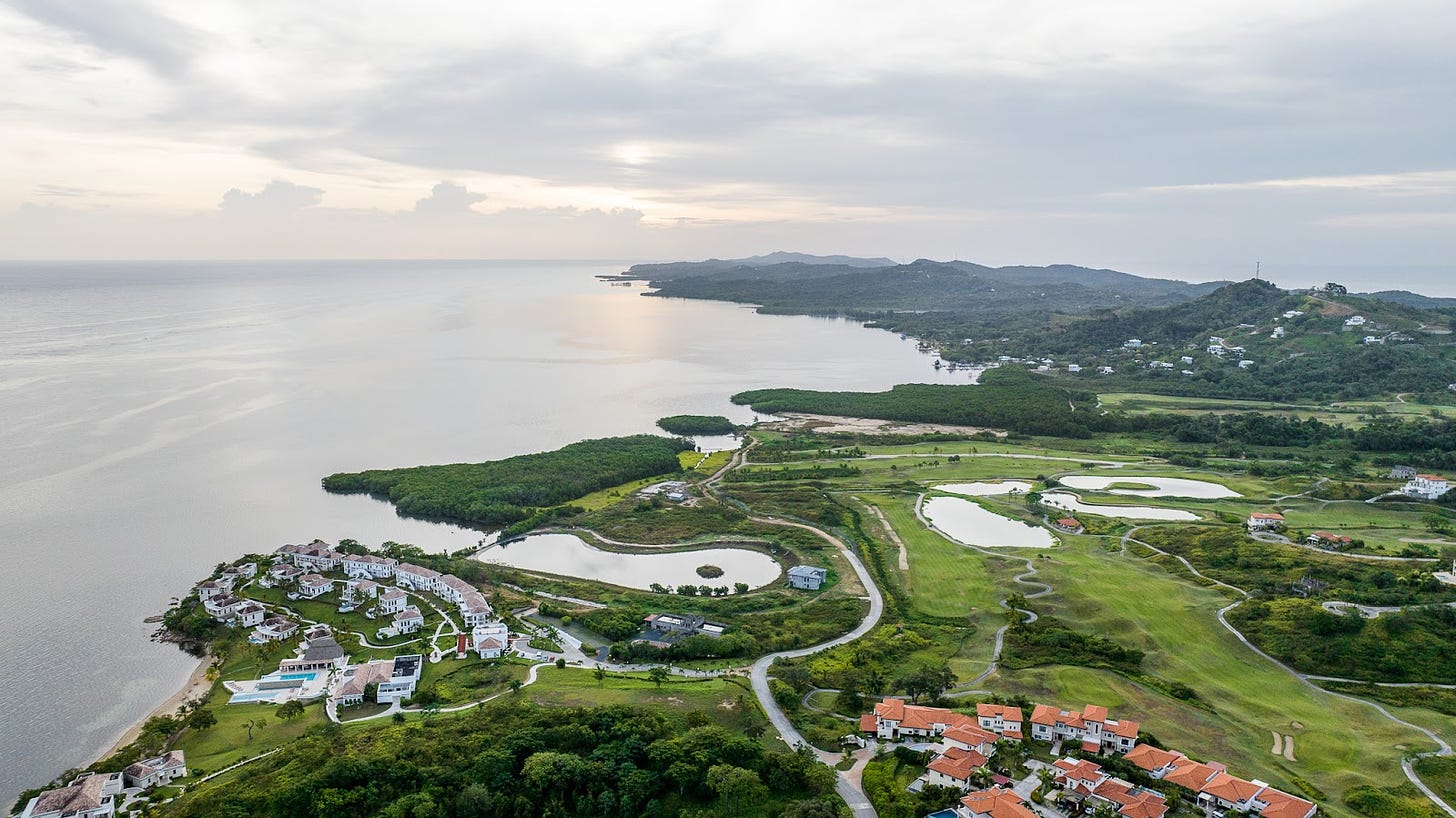
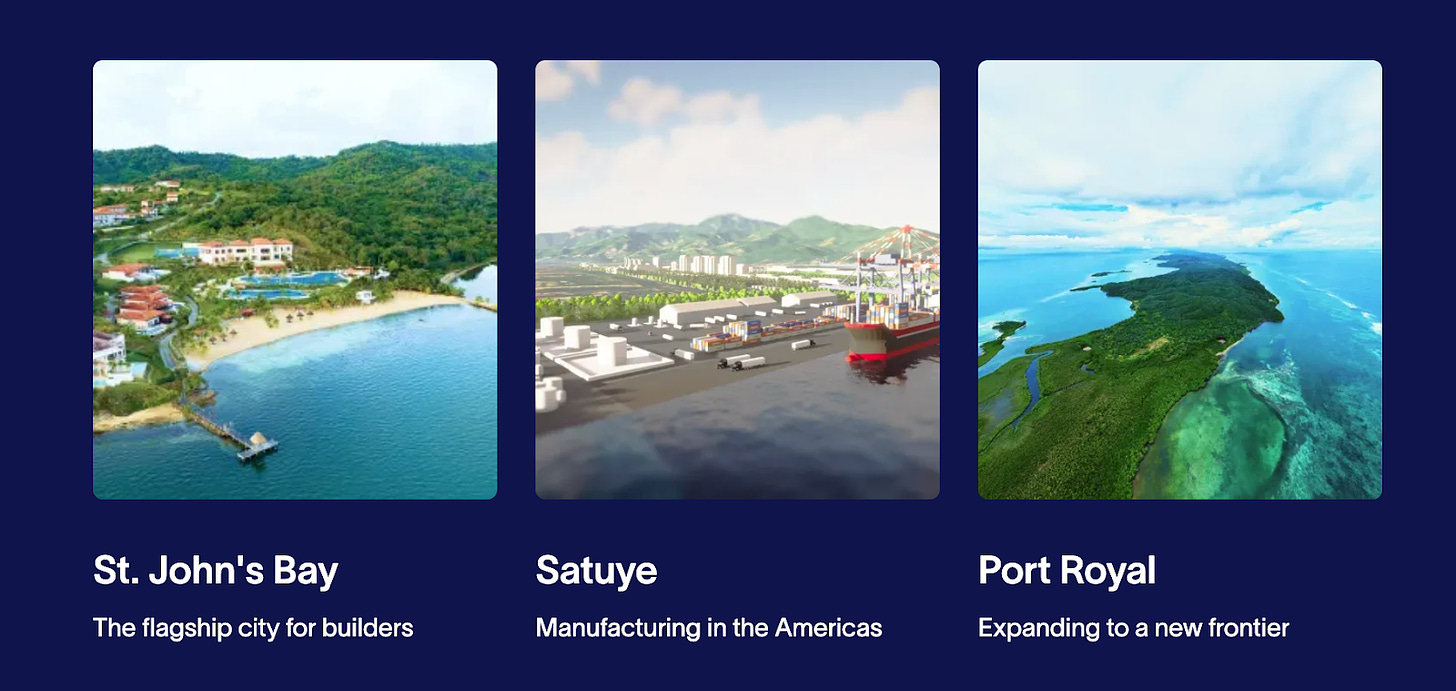
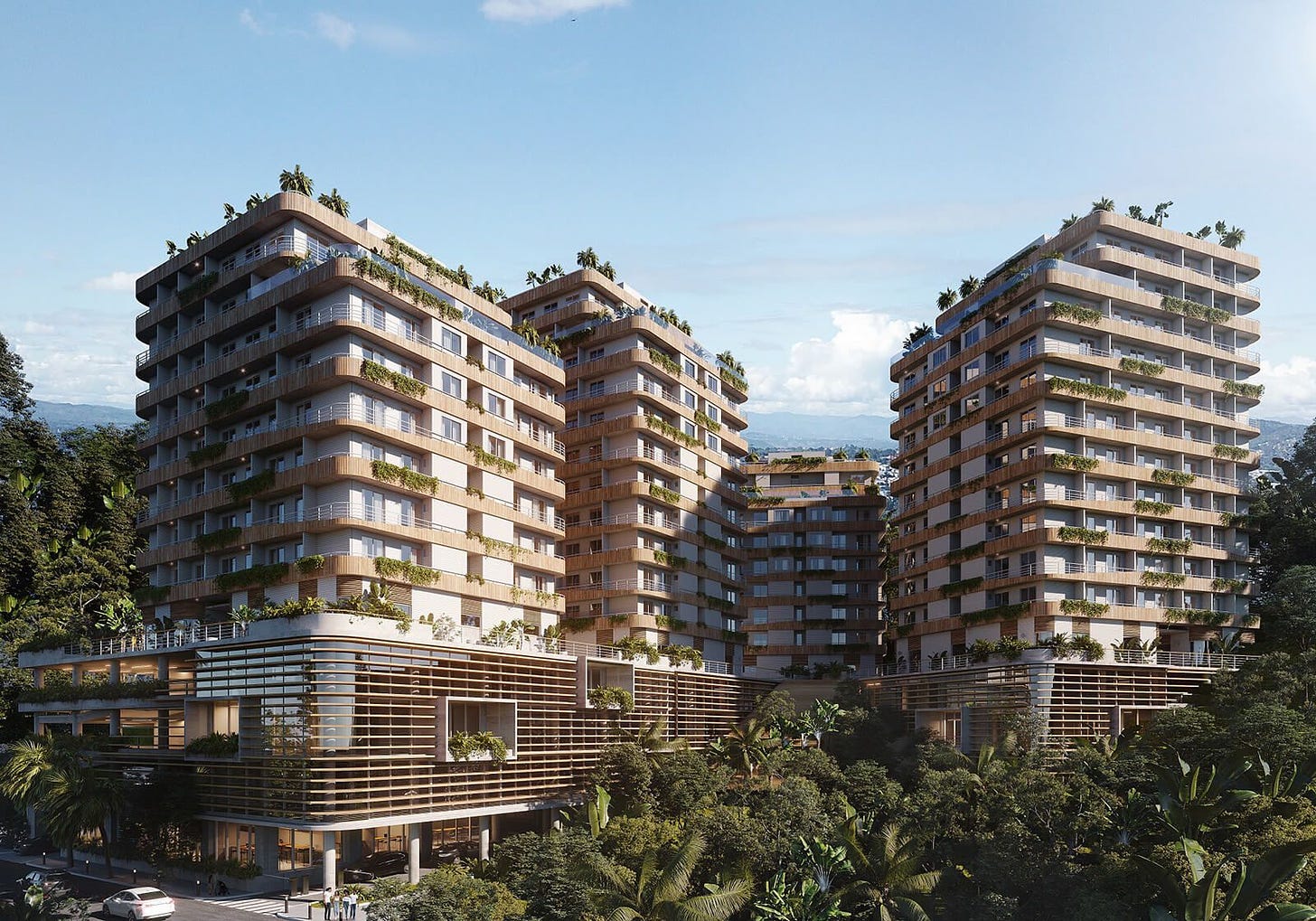
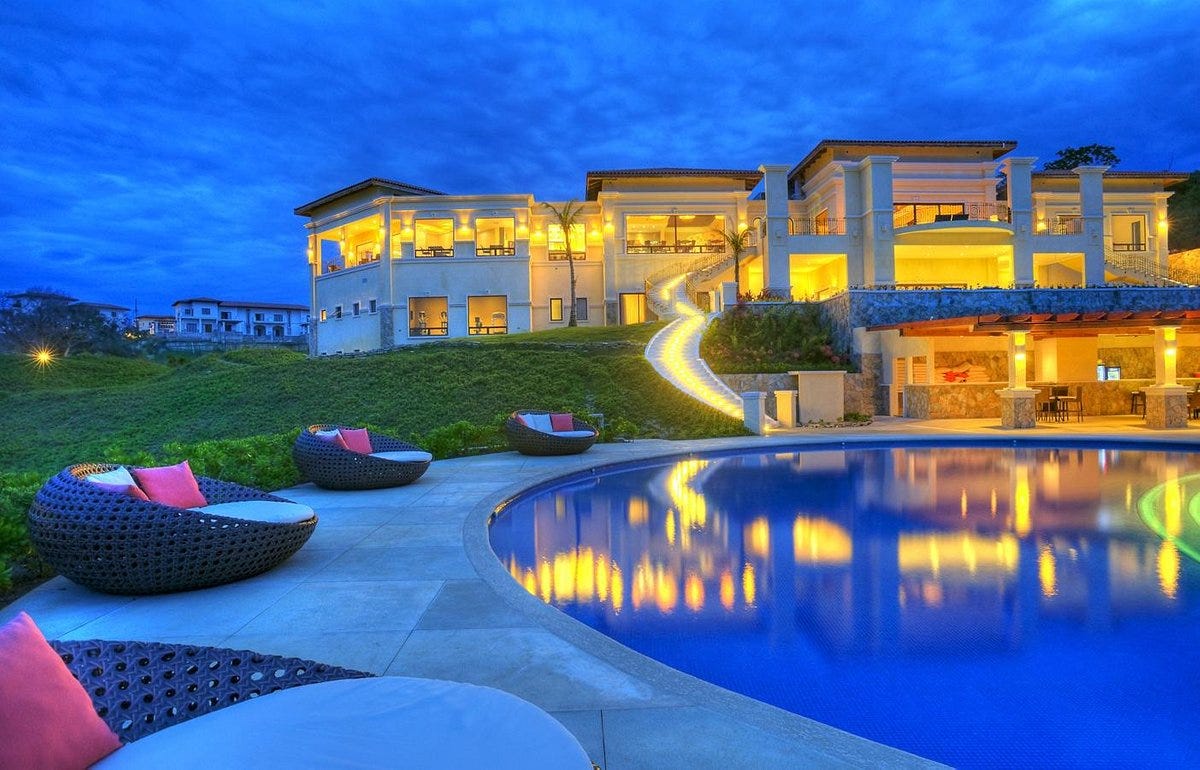

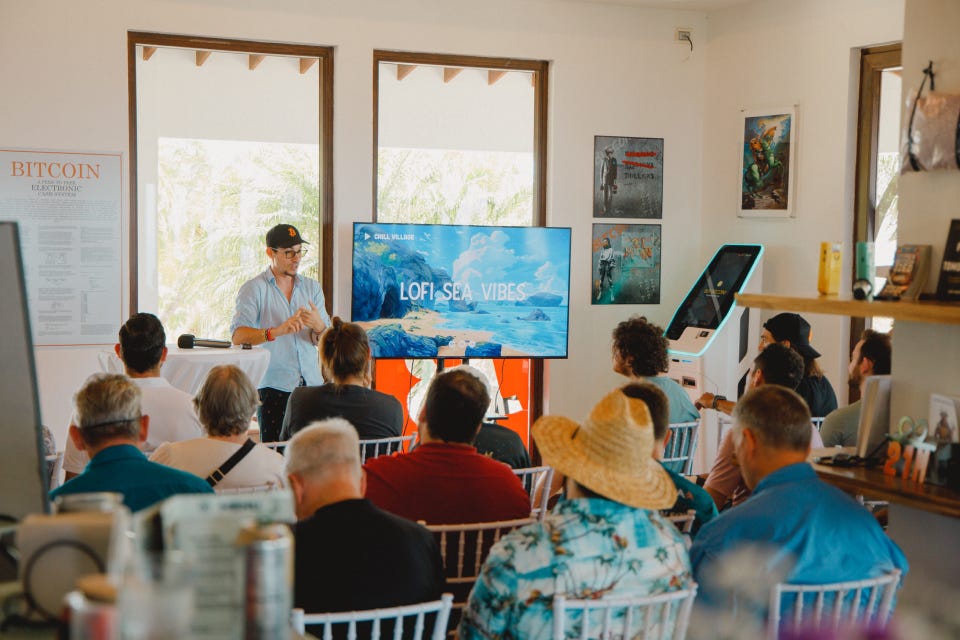
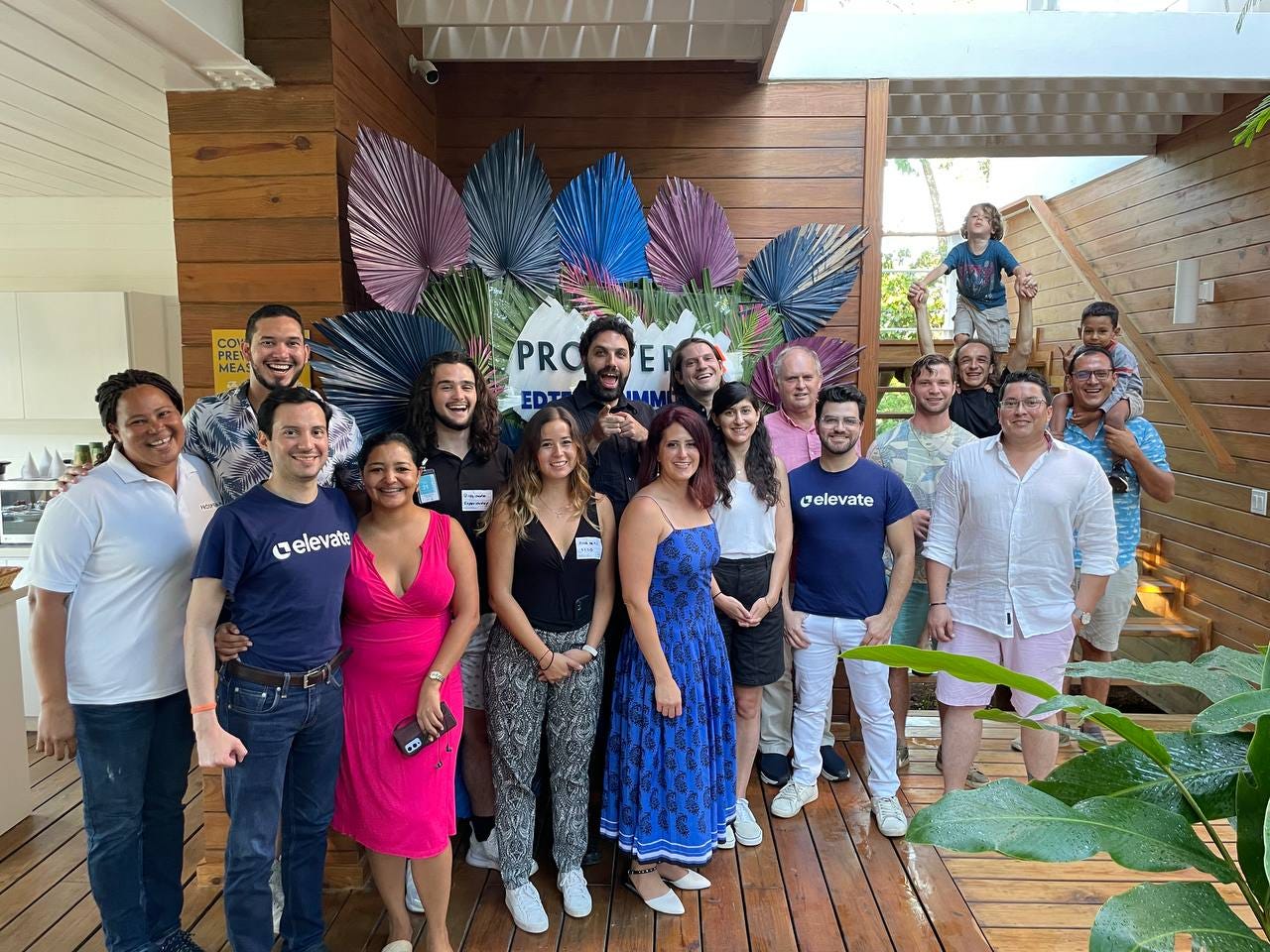
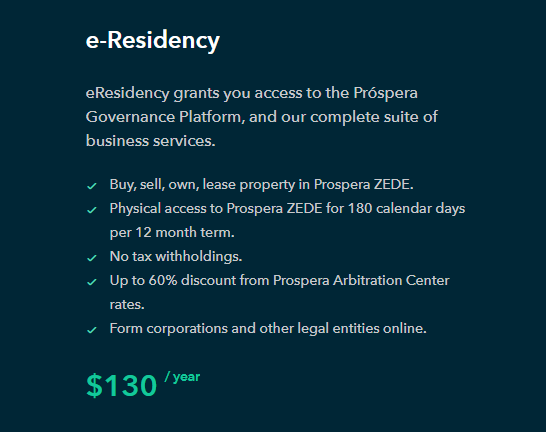
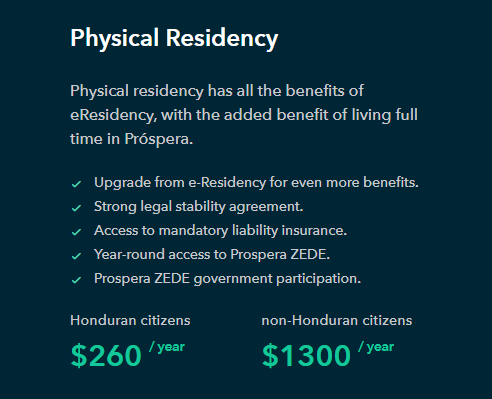
Really excellent overview, Niklas, thanks for putting it together.
Hey, can I run a prospera holding LLC or so as my holding company for my delaware LLCs (software companies)? If I send the profits out of delaware to prospera is that possible... how about a holding bank account? any recommendations?
best regards
Chris